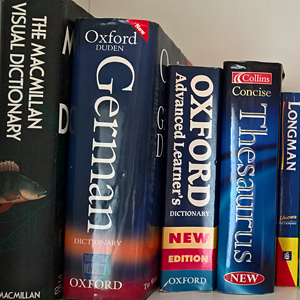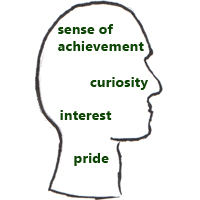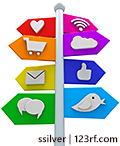 As a teenager, I had quite a quirky hobby; I loved to browse and read dictionaries! (Like other people would read books or magazines.)
As a teenager, I had quite a quirky hobby; I loved to browse and read dictionaries! (Like other people would read books or magazines.)
To give you a bit of context, this was back in the early nineties. The internet wasn’t really a thing yet and I was in boarding school with a limited choice of hobbies avalable ;-)
My first dictionary was a bilingual German / English one and it was probably just as well that I only had this one dictionary to start with, because quite soon, I became a bit obsessed with learning new words and spent way too much time reading and browsing. Had I known back then about all the other types of dictionaries I’m about to introduce to you now, I probably would’ve been in a lot of trouble :D
A dictionary is a very useful tool for learning a language. However, if you are just using a bilingual dictionary, you are missing out! Which other English language dictionaries do best suit your needs? Find out here:
 I've recently watched two interesting TEDxTalks on youtube. Two hyperpolyglots talked about learning languages. (Hyperpolyglots are people who can speak several languages). Which made me think about my own approach towards languages and learning strategies, and I realised that I use(d) mostly the same strategies. Some of them go hand in hand with each other, some of them work on their own.
I've recently watched two interesting TEDxTalks on youtube. Two hyperpolyglots talked about learning languages. (Hyperpolyglots are people who can speak several languages). Which made me think about my own approach towards languages and learning strategies, and I realised that I use(d) mostly the same strategies. Some of them go hand in hand with each other, some of them work on their own.
 Instagram
Instagram